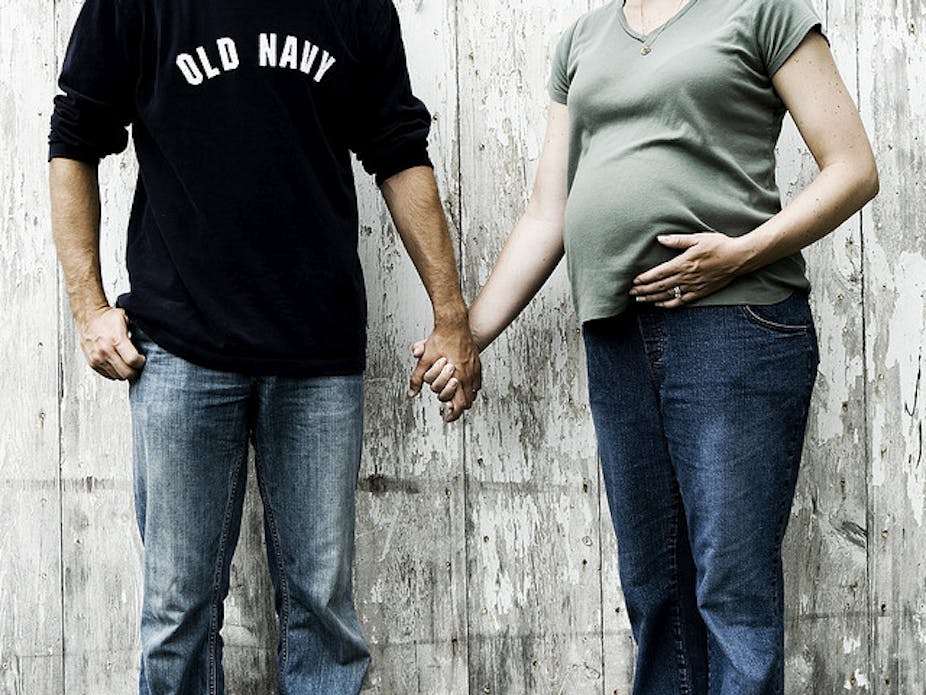The mental health and well-being of Australian children is deteriorating and this is caused by a breakdown of two parent families, according to a report released today by University of Sydney Law Professor Patrick Parkinson.
The For Kids’ Sake report was commissioned by the Australian Christian Lobby and draws on previously published data. So what should we make of it?
Professor George Patton, Group Head of Population Health Studies of Adolescents at the Murdoch Children’s Research Institute, explains that the situation is a lot more complicated.
Is the well-being of young people declining?
We would need to have good records on children and young people’s mental health, well-being and behaviour going back 50 years to be clear about whether there has been a decline. At best these records go back about 20 years.
But there is a strong feeling that we’re seeing higher rates of emotional and behavioural problems in young people than we’ve seen in previous generations, across a range of areas:
Self-harm has leapt into prominence in the past decade.
Patterns of drinking in young people have changed, with higher rates of drinking and more risky behaviour.
We’ve seen fluctuations in cannabis use, and other illicit drug use, which peaked around the turn of the millennium and has since fallen.
Young people are exposed to a more complex world than in previous generations. This brings terrific opportunities – and we talk a lot about the Internet and social networks – but also emotional hazards.
There’s long been a generation gap between parents and their kids but the gap has become wider and it’s harder for parents to engage in the world of young people.
What do you make of Professor Parkinson’s claim that the rise in parental separation and an increase in single parent families is to blame?
There’s no doubt that a young person’s relationship with their parents and siblings is really powerful driver of who they are, how they feel about themselves and how they behave.
Kids who grow up in families where parents are separated tend to have more emotional and behavioural problems, and they tend to be more persistent.
That doesn’t mean that families other than a ‘traditional’ two parent family are bad places for kids.
Good parenting is based on the capacity of parents to communicate and connect with their children. They also need to set values, boundaries and rules – these are the kinds of things kids need when growing up.
What is known about the mental health and well-being of children in alternative family settings?
The last National Mental Health Survey of Children and Adolescents dates back to 2000. It found kids were doing best in families where there were two biological parents together. They were doing least well in families where there was a single parent. Families where you had a step-parent or children moving between parents fared somewhere in the middle.
But despite alternative family structures becoming more common, they really haven’t been systematically studied. The next National Mental Health Survey of Children and Adolescents is currently being planned – and how kids fare in alternative family settings is a really important question for this survey to consider.
Are you concerned about stigmatisation of single parent families and alternative family structures when you see reports such as this?
One of the big dangers is making the parents of these families feel inferior and insecure – that’s the last thing they need.
These families have a different set of challenges. And stigma, not only for the parents but also for the kids growing up in those families, is one of these challenges.
The way families are forming has changed profoundly over the past few decades, in terms of the age at which we’re becoming parents, whether we choose to marry, whether a parent works, or both parents work, and the likelihood of parents being time-poor. These are all huge changes that have occurred within a relatively short space of time.
We’re also seeing new family structures emerge. As a society, we’ve moved beyond looking at a family merely in terms of two biological parents of different sexes living together.
We’re facing a future where families will come in all shapes and sizes. So we need to think about new models to best support the changing needs of these such families.
Prof Parkinson argues that greater education and family support is needed to improve the health and well-being of children. Is he missing anything?
I’ve had a quick glance through his recommendations and I agree that we should be educating parents. But there’s a question about whether education will, in itself, be sufficient.
We need to be looking at the broader context in which parents are functioning.
The shape of families has changed. The role of extended family members as live-in caregivers has changed. Parents are working more and there are fewer opportunities for parents to come together with other parents in a way that is mutually supportive.
All these factors need to be considered.
There’s another group of parents that this report largely overlooks: the teenage parents, or the mums and dads who have dropped out of school.
They’re often not on a great life track in terms of their own emotional well-being and their own risky behaviours. They often don’t have great employment prospects.
These young people who become parents have particular needs. And their kids have particular needs that are different again. They need material and emotional support. Without this, education really isn’t going to make much difference.

